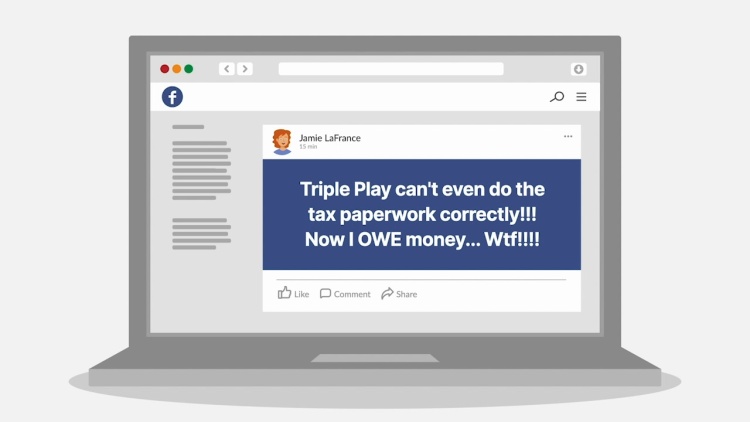Three D v. National Labor Relations Board
United States Court of Appeals for the Second Circuit
629 F. App’x 33 (2015)
- Written by Jenny Perry, JD
Facts
Ralph DelBuono and Thomas Daddona owned Three D, LLC, d/b/a Triple Play Sports Bar and Grille (Triple Play) (defendant). DelBuono handled Triple Play’s accounting. Some Triple Play employees discovered that they owed more than expected in taxes and talked about the issue while at work. Triple Play called a staff meeting and invited its payroll processor to discuss the matter. Before the staff meeting, however, a former Triple Play employee complained on Facebook that he owed extra state taxes due to Triple Play and that DelBuono and Triple Play were incompetent. A current Triple Play employee liked the post, and multiple employees commented on it, as did a Triple Play customer. A Facebook discussion ensued that was highly critical of Triple Play and that contained obscenities. Daddona learned about the post from his sister, who was Facebook friends with the former employee who started the discussion. Daddona fired one of the employees who commented on the post when she reported to work, telling her that the comment showed she was disloyal. Daddona and DelBuono threatened to file defamation lawsuits against other employees, and Triple Play’s lawyer sent a letter to one of them but did not follow up. That employee was also discharged. In addition, Triple Play had an internet and blogging policy that subjected employees who engaged in inappropriate discussions about Triple Play or its management to discipline, including discharge. The National Labor Relations Board (NLRB) (plaintiff) found that Triple Play violated § 8(a)(1) of the National Labor Relations Act (NLRA) by taking adverse action against employees for their Facebook activity and by maintaining an overbroad internet and blogging policy. Triple Play appealed.
Rule of Law
Issue
Holding and Reasoning (Straub, J.)
What to do next…
Here's why 899,000 law students have relied on our case briefs:
- Written by law professors and practitioners, not other law students. 47,000 briefs, keyed to 994 casebooks. Top-notch customer support.
- The right amount of information, includes the facts, issues, rule of law, holding and reasoning, and any concurrences and dissents.
- Access in your classes, works on your mobile and tablet. Massive library of related video lessons and high quality multiple-choice questions.
- Easy to use, uniform format for every case brief. Written in plain English, not in legalese. Our briefs summarize and simplify; they don’t just repeat the court’s language.







